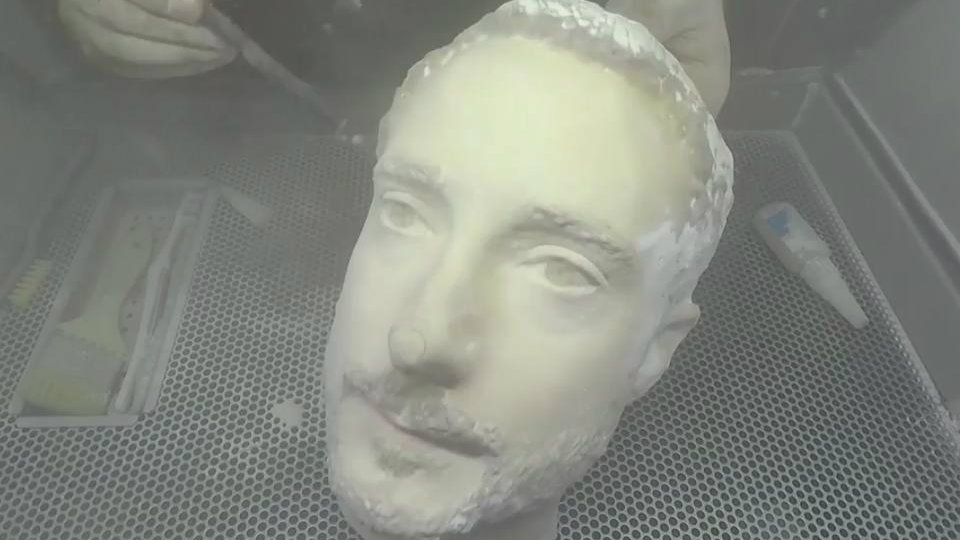Android phones' face recognition duped by a 3D printed head
Apple is head and shoulders above the rest

Sign up for breaking news, reviews, opinion, top tech deals, and more.
You are now subscribed
Your newsletter sign-up was successful
Since debuting Face ID in 2017, Apple has stood head and shoulders above the competition in terms of face recognition technology, if you'll forgive the pun. But while Android phones have tried to keep up, new research suggests that their own version of the tech isn't quite up to scratch.
In a test conducted by Forbes, the Galaxy Note 8, Galaxy S9, LG G7 ThinQ, and OnePlus 6 were able to be unlocked using a (somewhat terrifying) 3D printed head. This was in stark contrast to the iPhone X, whose Face ID technology wasn't fooled by the fake head.
This could be due to the differences in the type of technology used to implement face recognition security among the different brands.
While Face ID on the iPhone X, iPhone XR, and iPhone XS uses an array of sensors to identify the user, Android phones tend to rely on the selfie camera, which appears to be far less secure.

Head-strong
Some of the Android phones fared better than others in the tests – Samsung's Galaxy Note 8 and Galaxy S9 use iris recognition, which wasn't fooled by the 3D printed head.
The worst offender was the OnePlus 6, which Forbes found unlocked itself almost instantly every time it was presented with the model head.
So what does this mean for consumers? Well, what has become clear is that Android's face recognition technology is designed for convenience rather than robust security.
Sign up for breaking news, reviews, opinion, top tech deals, and more.
And while nobody expects criminals to start carrying around 3D heads to try to gain access to your smartphone, it appears that even showing a photograph of the user is enough to fool some Android phones into unlocking.
Therefore, if you're serious about keeping your phone secure, and you like the convenience of simply using your face to unlock your phone, it may be worth spending the extra money on the one of the newer iPhone models.
- Read our iPhone XS review

Olivia was previously TechRadar's Senior Editor - Home Entertainment, covering everything from headphones to TVs. Based in London, she's a popular music graduate who worked in the music industry before finding her calling in journalism. She's previously been interviewed on BBC Radio 5 Live on the subject of multi-room audio, chaired panel discussions on diversity in music festival lineups, and her bylines include T3, Stereoboard, What to Watch, Top Ten Reviews, Creative Bloq, and Croco Magazine. Olivia now has a career in PR.